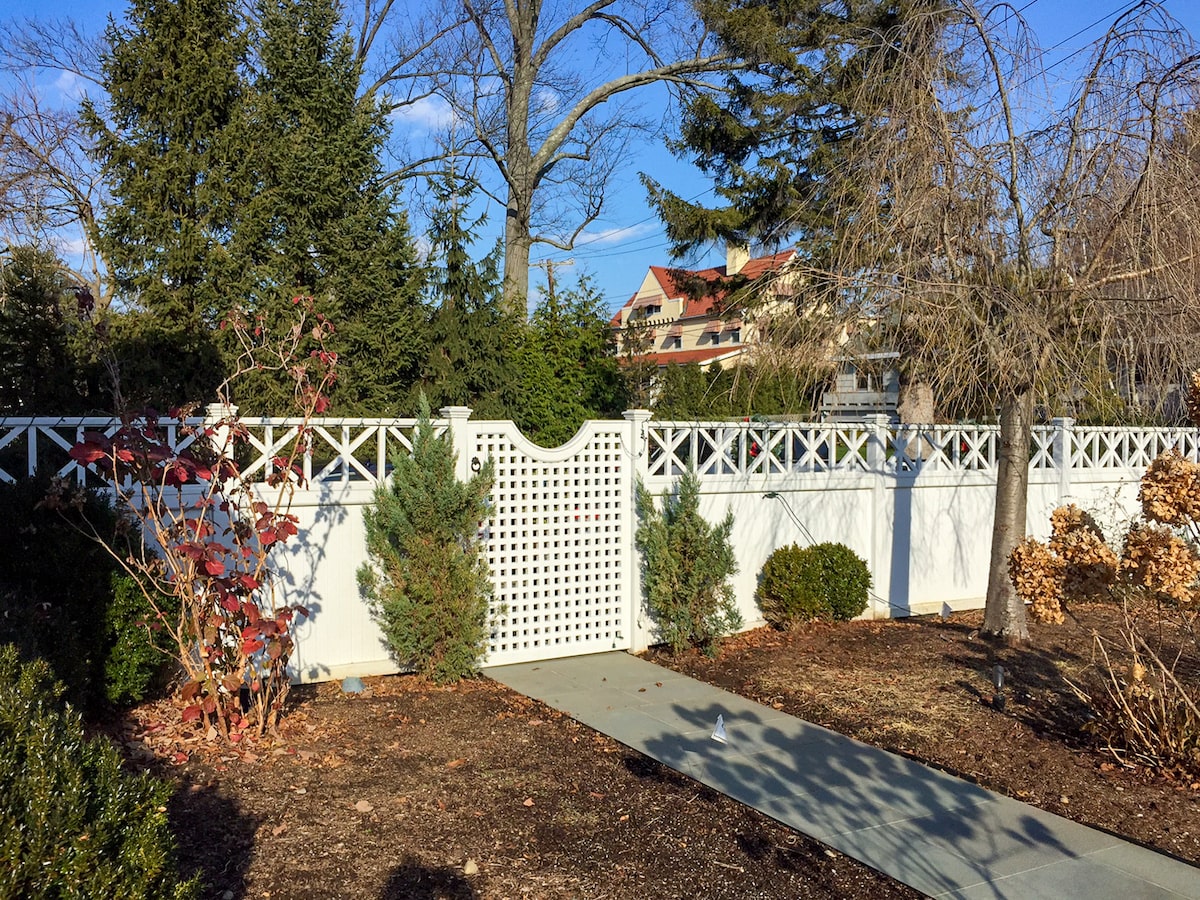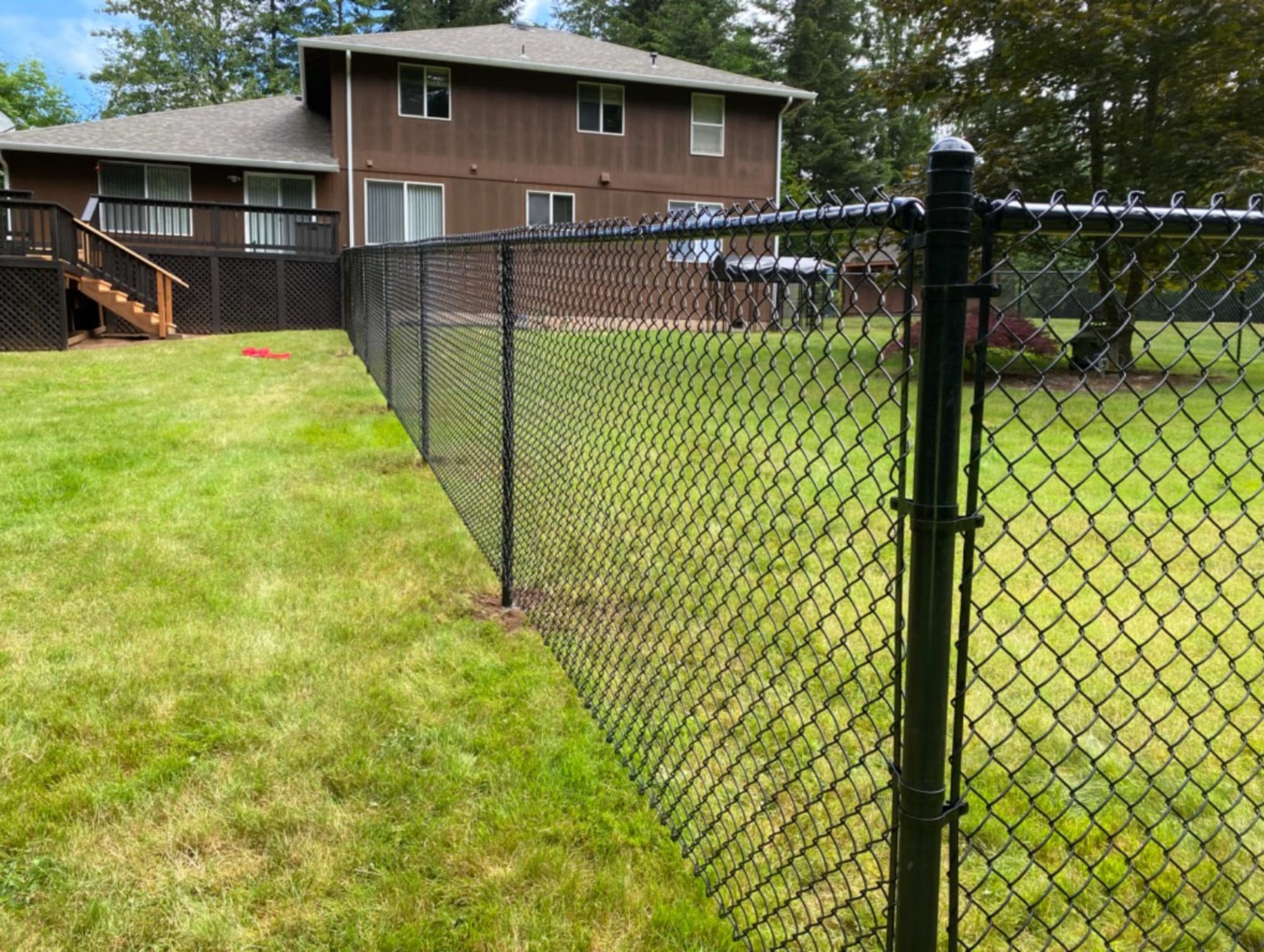All Categories
Featured
Selecting the right fence material for your building is a significant choice, and each alternative comes with its very own set of advantages and difficulties. Wood, plastic, and light weight aluminum are among one of the most prominent products for both industrial and domestic secure fencing. Below's a malfunction of the advantages and disadvantages of each to help you determine which is ideal for your demands.
Timber Secure Fencing. Pros:
Visual Allure: Timber uses a timeless, all-natural look that enhances almost any kind of design of residential or commercial property. It can be painted or tarnished in a vast array of colors, enabling complete modification. Whether you're intending for a rustic, country-style look or a much more polished and refined look, timber is functional.
Cost-efficient: Normally, timber fencings are just one of the most affordable alternatives when it pertains to upfront expenses. It's an excellent alternative for those on a spending plan who want a quality fence without a high cost.
![]()
Customization: Wood can be easily adjusted to fit any kind of shape or size. You can pick from numerous styles such as personal privacy, picket, or ranch-style fencings. It's likewise simple to modify, fix, or change parts if needed.
Cons:
Maintenance: Timber fencings call for regular maintenance. They need to be stained or repainted regularly to stop bug, warping, or rot infestation. Without maintenance, timber can wear away much faster, especially in humid or damp environments.
Susceptibility to Damage: Timber is vulnerable to harm from parasites, such as termites, and weather problems, like high winds, rainfall, or snow. Over time, direct exposure to these elements can create the wood to break, splinter, or warp.
Shorter Life-span: While wood fences can last for years, they generally have a much shorter lifespan compared to plastic or aluminum, particularly otherwise kept consistently.
Plastic Fencing. Pros:
Reduced Upkeep: One of one of the most eye-catching attributes of plastic fencings is that they need little to no upkeep. Unlike wood, plastic doesn't need to be painted or tarnished. It's resistant to fading, splitting, and warping, making it excellent for those who want a convenient fencing.
Toughness: Plastic fences are extremely resilient and can withstand severe weather, including extreme heat, hefty rainfall, or snow. They're also immune to pests like termites, which can damage timber fencings.
Long Life expectancy: Vinyl fencings can last for 20-30 years or even more with very little maintenance. Several suppliers use guarantees, supplying assurance and further boosting the value of your investment.
![]()
Range of Styles: Readily available in an array of colors, appearances, and styles, vinyl fencings can resemble the look of wood but without the maintenance. They are readily available in designs like personal privacy, picket, and decorative, making them very customizable.
Disadvantages:
Greater Preliminary Expense: The ahead of time cost of vinyl fence is commonly higher than timber, making it much less affordable for some. Nevertheless, its durability and low maintenance make it a rewarding investment over time.
Fragile in Cold Weather: In chillier climates, vinyl can become brittle gradually, that makes it a lot more vulnerable to breaking if based on impact. This can be an issue in locations with severe wintertimes.
Minimal Modification: While vinyl comes in a range of shades and layouts, it's not as customizable as wood. If you have a very details vision in mind, vinyl may not be the most effective option.
Light Weight Aluminum Fencing. Pros:
Reduced Upkeep: Aluminum is another product that needs really little upkeep. Unlike wood, it does not rust, wear away, or discolor. This makes it perfect for atmospheres with extreme weather condition or coastal areas where saltwater can create corrosion.
Toughness: Light weight aluminum fencings are known for their strength and lengthy life expectancy. They can stand up to harsh weather condition, and unlike timber or vinyl, they are immune to pests and will not wear away gradually.
![]()
Visual Allure: Light weight aluminum fences give a streamlined, classy appearance and are commonly made use of for decorative objectives. They are available in numerous styles and coatings and can improve the total visual allure of your residential or commercial property.
Safety: Light weight aluminum is a strong material, making it an outstanding alternative for supplying security around your residential property. It's commonly utilized for property protection fencing as well as for swimming pool rooms.
Cons:
Expense: Aluminum fences are frequently a lot more pricey than timber and occasionally also plastic, specifically when going with decorative or personalized layouts. The first cost may be a deterrent for some residential or commercial property owners.
Less Personal Privacy: One of the disadvantages of aluminum is that it generally uses less privacy compared to timber or vinyl. The voids between the bars or slats can be broad, which enables individuals to see via the fence. If privacy is crucial to you, this may not be the very best alternative.
Nicking: While aluminum is sturdy, it is prone to nicking from heavy impacts, such as auto crashes or vandalism. While it will not rust, a dent can jeopardize its look and honesty.
Which Product Should You Select? The choice between light weight aluminum, plastic, and timber fence comes down to your budget plan, the amount of upkeep you're prepared to handle, and the details requirements of your residential or commercial property. If you prefer a natural, personalized appearance and are ready to keep it, wood might be the means to go.
Consider your residential or commercial property's climate, the level of privacy or safety and security you need, and the long-lasting financial investment you agree to make. Whichever product you select, each deals special benefits that can improve your home or organization while providing capability and style.
Timber Secure Fencing. Pros:
Visual Allure: Timber uses a timeless, all-natural look that enhances almost any kind of design of residential or commercial property. It can be painted or tarnished in a vast array of colors, enabling complete modification. Whether you're intending for a rustic, country-style look or a much more polished and refined look, timber is functional.
Cost-efficient: Normally, timber fencings are just one of the most affordable alternatives when it pertains to upfront expenses. It's an excellent alternative for those on a spending plan who want a quality fence without a high cost.

Customization: Wood can be easily adjusted to fit any kind of shape or size. You can pick from numerous styles such as personal privacy, picket, or ranch-style fencings. It's likewise simple to modify, fix, or change parts if needed.
Cons:
Maintenance: Timber fencings call for regular maintenance. They need to be stained or repainted regularly to stop bug, warping, or rot infestation. Without maintenance, timber can wear away much faster, especially in humid or damp environments.
Susceptibility to Damage: Timber is vulnerable to harm from parasites, such as termites, and weather problems, like high winds, rainfall, or snow. Over time, direct exposure to these elements can create the wood to break, splinter, or warp.
Shorter Life-span: While wood fences can last for years, they generally have a much shorter lifespan compared to plastic or aluminum, particularly otherwise kept consistently.
Plastic Fencing. Pros:
Reduced Upkeep: One of one of the most eye-catching attributes of plastic fencings is that they need little to no upkeep. Unlike wood, plastic doesn't need to be painted or tarnished. It's resistant to fading, splitting, and warping, making it excellent for those who want a convenient fencing.
Toughness: Plastic fences are extremely resilient and can withstand severe weather, including extreme heat, hefty rainfall, or snow. They're also immune to pests like termites, which can damage timber fencings.
Long Life expectancy: Vinyl fencings can last for 20-30 years or even more with very little maintenance. Several suppliers use guarantees, supplying assurance and further boosting the value of your investment.

Range of Styles: Readily available in an array of colors, appearances, and styles, vinyl fencings can resemble the look of wood but without the maintenance. They are readily available in designs like personal privacy, picket, and decorative, making them very customizable.
Disadvantages:
Greater Preliminary Expense: The ahead of time cost of vinyl fence is commonly higher than timber, making it much less affordable for some. Nevertheless, its durability and low maintenance make it a rewarding investment over time.
Fragile in Cold Weather: In chillier climates, vinyl can become brittle gradually, that makes it a lot more vulnerable to breaking if based on impact. This can be an issue in locations with severe wintertimes.
Minimal Modification: While vinyl comes in a range of shades and layouts, it's not as customizable as wood. If you have a very details vision in mind, vinyl may not be the most effective option.
Light Weight Aluminum Fencing. Pros:
Reduced Upkeep: Aluminum is another product that needs really little upkeep. Unlike wood, it does not rust, wear away, or discolor. This makes it perfect for atmospheres with extreme weather condition or coastal areas where saltwater can create corrosion.
Toughness: Light weight aluminum fencings are known for their strength and lengthy life expectancy. They can stand up to harsh weather condition, and unlike timber or vinyl, they are immune to pests and will not wear away gradually.

Visual Allure: Light weight aluminum fences give a streamlined, classy appearance and are commonly made use of for decorative objectives. They are available in numerous styles and coatings and can improve the total visual allure of your residential or commercial property.
Safety: Light weight aluminum is a strong material, making it an outstanding alternative for supplying security around your residential property. It's commonly utilized for property protection fencing as well as for swimming pool rooms.
Cons:
Expense: Aluminum fences are frequently a lot more pricey than timber and occasionally also plastic, specifically when going with decorative or personalized layouts. The first cost may be a deterrent for some residential or commercial property owners.
Less Personal Privacy: One of the disadvantages of aluminum is that it generally uses less privacy compared to timber or vinyl. The voids between the bars or slats can be broad, which enables individuals to see via the fence. If privacy is crucial to you, this may not be the very best alternative.
Nicking: While aluminum is sturdy, it is prone to nicking from heavy impacts, such as auto crashes or vandalism. While it will not rust, a dent can jeopardize its look and honesty.
Which Product Should You Select? The choice between light weight aluminum, plastic, and timber fence comes down to your budget plan, the amount of upkeep you're prepared to handle, and the details requirements of your residential or commercial property. If you prefer a natural, personalized appearance and are ready to keep it, wood might be the means to go.
Consider your residential or commercial property's climate, the level of privacy or safety and security you need, and the long-lasting financial investment you agree to make. Whichever product you select, each deals special benefits that can improve your home or organization while providing capability and style.
Latest Posts
Expert Automatic Gate Installation - Professional Gate Installation by Idaho Fence.
Published Jan 20, 25
1 min read
Which Furnishings Products Are Best for Toughness and Design?
Published Jan 20, 25
0 min read
Experience Quality Craftsmanship with Idaho Fence
Published Jan 20, 25
1 min read
More
Latest Posts
Expert Automatic Gate Installation - Professional Gate Installation by Idaho Fence.
Published Jan 20, 25
1 min read
Which Furnishings Products Are Best for Toughness and Design?
Published Jan 20, 25
0 min read
Experience Quality Craftsmanship with Idaho Fence
Published Jan 20, 25
1 min read